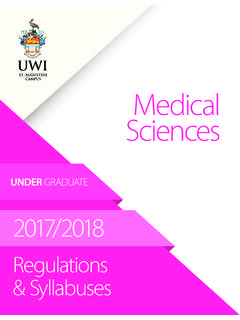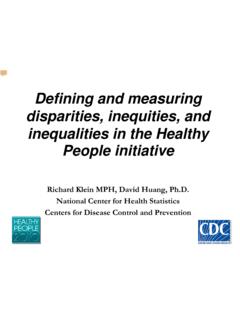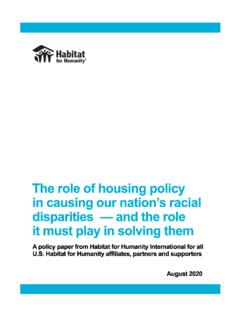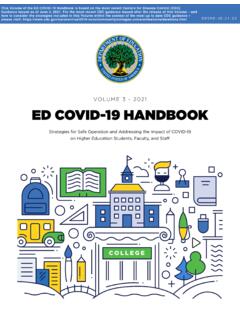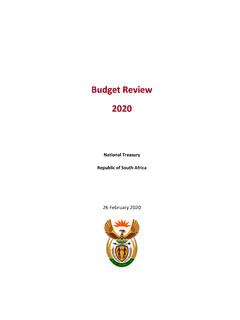Transcription of EDUCATION, SOCIETY AND DEVELOPMENT
1 SIR ARTHUR LEWIS INSTITUTE OF SOCIAL & ECONOMIC STUDIES. CONFERENCE 2007. TRINIDAD AND TOBAGO, 26 28 MARCH 2007. TITLE: education , SOCIETY AND DEVELOPMENT : SOME CRITICAL ISSUES. INTRODUCTION. The relationship between education and DEVELOPMENT cannot be debated without linking the structure of educational systems to the economic and social character of societies. That link between education and DEVELOPMENT is a two-way process. Educational systems, for the most part, reflect the socio-economic structures of the societies in which they function; whether egalitarian or inegalitarian. There is also the tendency for educational systems to perpetuate, reinforce and even reproduce those economic and social structures. Paradoxically, educational reforms can significantly induce corresponding social and economic reforms in the societies. There are many components of the DEVELOPMENT question, but for the purpose of this paper, the focus will be on the human resources, inequality and poverty, migration, and rural DEVELOPMENT , to examine the principal forces behind them, and ways they influence or are influenced by educational systems.
2 This examination, though not comprehensive, will seek to demonstrate the relationship between education and each of these critical areas. education AND HUMAN RESOURCE DEVELOPMENT . Human resources constitute the ultimate basis for wealth of nations. Capital and natural resources are passive factors of production; human beings are the active agents who accumulate capital, exploit natural resources, build social, economic and political organizations, and carry forward national Most educational planners, serious commentators and economists would argue that major educational reforms within small developing States are now urgently needed; and that the determination and pace of a nation's social and economic DEVELOPMENT are contingent on its human resources and not its capital or its materials resources. According to Frederick H. Harbinson, A country which is unable to develop the skills and knowledge of its people and to utilize them effectively in the national economy will be unable to develop anything else.
3 2 In that regard, the formal education system has therefore been viewed as the principal institutional mechanism for developing knowledge, skills, values, attitudes and aspirations, and that will enable individuals to _____. 1. Frederick H. Harbison, Human Resources as the Wealth of Nations. New York: Oxford University Press, 1973. 2. Frederick H. Harbison, 1973. 1. function effectively as agents of change in societies. It is the belief that the greater the emphasis and increase of these outcomes the more rapid the DEVELOPMENT . This reality has led many countries especially small developing countries to commit to the rapid quantitative expansion of educational opportunities thereby increasing the enrolments at all levels of the school system. It is this quest for educational expansion that led Caribbean Community (CARICOM) Countries to aspire to achieve universal primary and secondary education by 2007, and at least 25% of secondary school graduates enrolled in tertiary level institutions by 2008.
4 In all societies, education occupies the time and attention of a high proportion of the population. The commitment to quantitatively expand educational opportunities has resulted in the second or greatest share of governments' recurrent expenditure spent on education . For example, Barbados' allocation in 2005/2006 was ; St. Lucia was 21%, Jamaica, 18% and Belize 24%. However, cognizance should be taken of the fact that expanding formal education will not automatically translate to the spread of learning or improved living conditions of poor families. The acquisition of certificates, diplomas and degrees should not always be associated with improved ability to undertake productive work. It can be argued that education oriented almost exclusively towards preparing students for the work force, particularly for modern sector jobs, can significantly distort their aspirations. The reality is, in spite of years of expanding educational opportunities and millions of dollars of educational expenditure, the circumstances of the lower class in Caribbean societies have not significantly improved.
5 Poverty is on the rise in both rural and urban communities, unemployment and underemployment are reaching staggering proportions with many educated youth, in particular secondary and post-secondary graduates, joining the ranks of the educated unemployed ; and the economic disparities between the rich and poor are widening. As a consequence, all the major stakeholders and partners are beginning to seriously challenge the purpose and goals of formal education and the exaggerated claims, results and character of the DEVELOPMENT process itself. However, it would be unwise to blame all the problems of SOCIETY on the failures of the formal educational system; but at the same time the claims made to highlight the positive outcomes of the expansion of educational opportunities cannot be overlooked. We must therefore closely examine the fundamental basis of the economics and processes of education and its relationship to the economics of DEVELOPMENT .
6 In so doing, we must understand the principal motivation for education in small developing countries as a desire to improve the socio-economics status, and the economic processes through which such aspirations are either realized or frustrated. 2. education , INEQUALITIES AND POVERTY. "The destruction of the poor is their poverty". (Proverbs). Children who grow up in conditions of poverty, family stress and violence are at high risk of ill health, developmental delay and maladaptive Poverty can be defined in terms of the insufficiency of income giving rise to deterioration in life circumstances by the inability to secure the basic necessities essential for life (Oxford Dictionary, 1995). Townsend (1993) indicated that the correlation of ability and education can influence poverty4 In other words, intelligent families are less likely to have low income and be subject to the effects of socio-economic deprivation.
7 Children in poverty live in circumstances dominated by a certain hopelessness in which the sense that things are inexorably running down, weighs constantly on every decision and inhibits many positive They live in physically unsatisfactory conditions, overcrowded and unsanitary, lacking amenities or generally in a state of The debate can then begin on the premise that poor students have less chance of completing any given cycle of education than more affluent students. For many decades the primary objective of DEVELOPMENT has been to maximize the aggregate rates of output growth. Worldwide studies on the economics of education have predominantly focused on the relationship between education , labour productivity and output growth. As a consequence of that emphasis, the impact of education on the alleviation and or elimination of poverty and equal income distributions are often neglected. Equality of opportunity is a fundamental aim of education .
8 Conversely, the critical importance of formal education cannot be questioned. However, its structure, content, effects, impact, key strengths and weaknesses should really come under great scrutiny. It has become increasingly obvious that equalization of opportunity is impossible to achieve as, with the passage of time, societies have become more stratified, the status quo _____. 3. Joseph, Risk and Resilience in Adolescence and Young Adulthood: A Cross-Sectional Study of Educationally Resilient Children in St. Lucia. Doctoral Thesis (Unpublished). 1995. 4. P. Townsend, The International Analysis of Poverty. London: Harvester Wheatleaf, 1993. 5. K. Coates and R. Silburn, Poverty: The Forgotten Englishman. Nottingham: Russell Press Ltd., 1983. 6. D. Pilling, Escape from Disadvantage. London: The Falmer Press, 1990. 3. maintained, and persistent poverty has become a DEVELOPMENT , educational, social and economic problem.
9 Research has revealed that Iintergenerational transmission of inadequate social functioning perpetuates the inequalities which characterise both traditional and industrial societies. Nonetheless, a close examination of education systems in small developing States will confirm the assumption that they too perpetuate inequalities, keep people disadvantaged and reinforce the status quo. Children of poor families are easily identified in the classroom and usually begin school at an academic disadvantage. Studies on the impact of poverty on education indicate all too persuasively that poverty children often receive a disproportionate number of negative messages leveled at their ability to perform and at their personality and character. These messages begin from the early grades and often persist throughout the children's school career. Under these conditions, poor students view themselves as being helpless in academic settings thereby making educational success virtually impossible.
10 What is needed in the classroom are positive experiences that can mitigate the stress associated with the children's home and familial environment. To accomplish this, teachers can set standards, give incentives, praise, provide effective feedback, be a role model of exemplary behaviour, assign positions of trust and responsibility to children, and provide these children with order in a world gone Teachers are aware that the single most powerful predictor of academic performance is a student's socioeconomic background, as growing up in poverty does not adequately prepare children for what they will encounter in the classroom environment. The indicators of poverty are easily perceived as potential failure; an assumption that inevitably contributes to the difficulties poverty children face in At this point, it is difficult to know what percentage of poor children endure negative experiences because there is a lack of sufficient information; however it is safe to conclude that it is widespread, but not universal.

